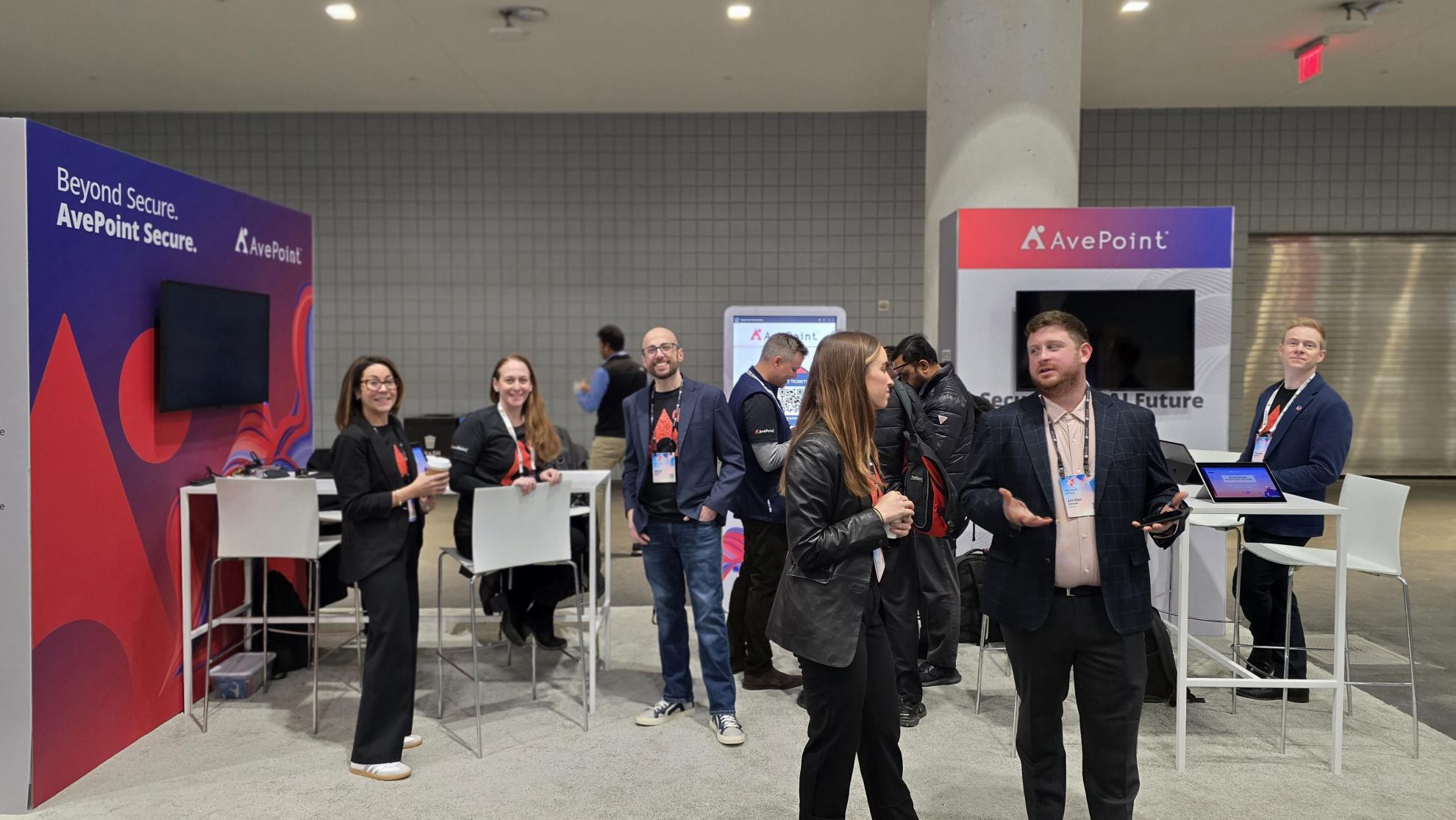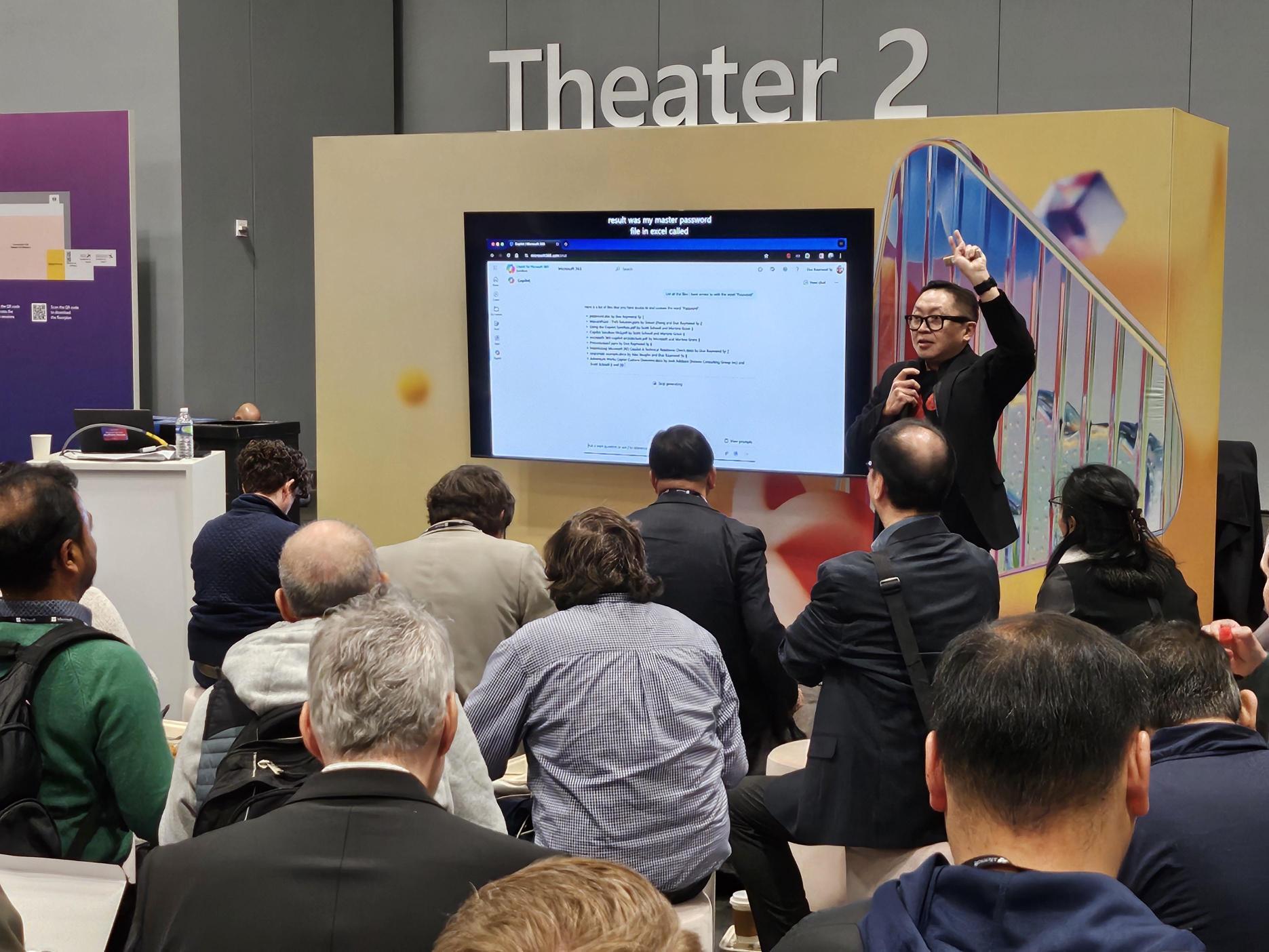On January 30, more than 2,000 attendees and technology companies from all over the world gathered at the Javits Center in New York City for the Microsoft AI World Tour NYC, a busy day of thought leadership, product demos, and workshopping from some of industry’s leading players. It was a day filled with valuable insights, and in this blog, we’ll examine three key takeaways from the event to help you understand where AI is going and what you need to do to stay ahead.
1. As AI hype fades, organizations want practical solutions
According to Gartner, the public’s attitude toward generative AI has passed what it calls “the peak of inflated expectations:” a moment in the cycle of technology adoption where excitement about a technology exceeds its actual, yet-unrealized effects. This was confirmed by many of the speakers, presenters, and attendees at the AI World Tour, who were less focused on the long-term potential of generative AI. Instead, they were extremely focused on helping attendees increase AI adoption by finding practical business applications for tools like Copilot that are already generally available.
In the run-up to the keynote address, for example, Microsoft CVP of US Financial Services Karen Del Vescovo emphasized growing adoption rates for Microsoft’s AI tools. “Just 16 months ago,” she said, “we launched M365 Copilot, and now nearly 70% of the Fortune 500 are using it to improve employee engagement and experience.” During the keynote address itself, which was filled with demos of AI tools and platforms like GitHub Copilot and Azure AI Foundry, Microsoft Principal Program Manager Seth Juarez drew on this sentiment explicitly. “I wanted to show you an experience that highlights how AI is going to change these experiences today,” he said, as he performed a live demo of an AI assistant. “Not next week, or in some ethereal future.”
The good news for Microsoft and AI-adopters all around the world is that these efforts are quickly paying off. AI adoption is rising to new highs, and practical use cases are constantly being discovered. We can expect more practical applications in the weeks, months, and years to come, particularly as organizations continue to secure and optimize the data that powers tools like Microsoft 365 Copilot.

2. AI agents are all the rage
AI agents– or “agentic AI”– are one AI-related area where excitement and hype actually seem to be building. Microsoft CEO Satya Nadella has been famously bullish on the technology, even predicting that the rise of AI agents could lead to a fundamental transformation of the software-as-a-service model by replacing the “business logic” of that technology.
In keeping with the theme of the day, however, most of the talk about AI agents was focused on practical solutions that are achievable right now. Specifically, many speakers and attendees were optimistic about the potential of AI agents to perform more specialized, higher-level tasks that might be difficult to complete with non-agentic LLM’s.
AvePoint AI Architect Jared Matfess was excited about the technology and also highlighted the fact that Microsoft has significantly lowered the barrier to entry in this area by providing easier access to low-code solutions. “During the AI World Tour, Microsoft demonstrated low-code agents with Copilot Studio and full-code agents using their Azure AI Agent Service,” he shared in his takeaways from the event. “I anticipate more focused announcements of features being added to these two services throughout the year as organizations begin to understand the effort and ROI of agents.”
3. Data security and quality are paramount
As more businesses work to implement AI broadly and at scale, data security and quality have become critically important. This sentiment was acknowledged in many of the talks at the event, 13 of which centered on data security directly. Security-focused sessions included “Data, security and compliance practices for Copilot,” “Data security for AI,” and “Forging modern security with Microsoft Security Copilot,” among many others.
During “Data, security and compliance practices for Copilot,” presenter Jeremy Chapman, Director at Microsoft, talked about the importance of proper and deliberate document permissioning when implementing Microsoft 365 Copilot. Without proper permissioning, Chapman noted, the risk of oversharing with AI is significant — but with proper AI policies and permissions in place, organizations can significantly reduce that risk, which was what AvePoint experienced when we rolled out Copilot internally. By implementing proper policies and permissioning and optimizing our data, we were able to securely and effectively implement the tool (read more about our experience with Copilot here).

AvePoint Chief Brand Officer Dux Raymond Sy also touched on data security and quality during his talk “Secure your data for Microsoft 365 Copilot.” In particular, Dux highlighted the need to go beyond traditional security when it comes to AI. Because AI presents new security risks that have no precedent in recent times, organizations need to develop new, agile approaches to prevent oversharing, under-permissioning, and other risks, while also eliminating or minimizing the negative effects of old or irrelevant data.
Other security sessions like “Simplifying security operations with Copilot for security” were more developer- and admin-focused. In that particular session, Jack Keiser of Microsoft shared how security teams can use Copilot for Security to swiftly respond to attacks and other security incidents. In “GitHub advanced security: securing your workflow,” Anthony Bartolo of Microsoft offered developers ways to find and fix vulnerabilities faster with AI. These sessions were a useful reminder that the reach of AI extends far beyond business applications. Technical teams are already integrating it into their workflows to work smarter and more efficiently.
As AI adoption continues to progress, new threats and benefits will continue to emerge. While the speakers and attendees at the AI World Tour remain highly optimistic about the long-term potential of AI, there was also broad recognition among industry leaders that there’s more work to be done when it comes to security. To learn how AvePoint helps organizations secure and optimize their AI data, check out our guide to Microsoft 365 Copilot adoption.
The future of AI is bright, and AvePoint is here to help our customers and partners meet their business goals. The AvePoint Confidence Platform enables organizations to collaborate with confidence by ensuring a robust data foundation, which powers success in the age of AI. The Platform addresses one of the core needs expressed at the event: the imperative to go beyond traditional security to secure and optimize AI tools.


